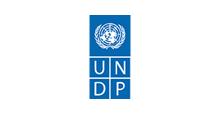COVID-19 is a new epidemic and there is a dearth of knowledge on its clinical, economic, social and long-term effects and outcomes on the urban poor. High levels of non-compliance to preventive guidelines have been observed; as people in slums try to adjust lifestyles within their reality of largely impoverished and crowded living circumstances. The research project seeks to develop evidence – from a sociobehavioral perspective – of how Ugandan COVID19 guidelines operate, are being perceived, experienced in practice and potential barriers to their adherence and compliance among urban slum communities in Kampala.
About the Research
- The study is a mixed methods cross-sectional assessment of COVID 19 experiences among people living in Kampala slums
- The empirical data will inform a behavioral intervention design
- The study sites are Ki-Mombasa and Kabalagala Kataba slums in Kampala, Uganda
Expected Outcomes
- The study will generate evidence on the COVID 19 pandemic among communities living in Ugandan slums.
- Study findings will inform responsive policy and guidelines to improve their health and wellbeing.
- Evidence from the study will inform the design of tailored and robust community-led interventions for health and wellbeing.
- The study team will support community members and other key stakeholders implement these interventions in a sustainable manner
- Creation of lasting, impactful and solution-oriented partnerships between academia and research institutions like Makerere and Gulu Universities with other key stakeholders working with and in Uganda’s informal settlements.









